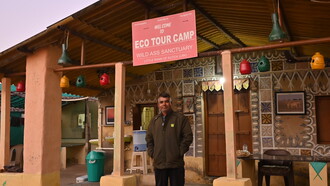It is common knowledge that since the mid-to-late twentieth century, developing countries all over the world, have been increasingly establishing, expanding and deepening cooperation and partnerships. The cooperation covers a wide range of issues, predominantly focusing on trade in goods and services as a vehicle for socio-economic development. The groupings of developing countries are organised in two broad streams, On one hand, there are regional organisations such as Mercado Commun del Sur (translated Southern Common Market or Mercosur) in South America, the Southern African Development Community (SADC) in Southern Africa, the European Union, and many more in other parts of the world.
On the other hand, there are also organisations of the countries of the South or developing economies with a more global reach such as the Group of 7 plus China, the recently expanded Brazil, Russia, India, China and South Africa (BRICS) or BRICS Plus Formation, to mention just the two. One of the main distinguishing features of the South-South Cooperation organisations such as Mercosur and SADC is that they are marked by economic and political asymmetries, with dominant countries’ national interests swaying the organisation’s decisions and programmes one way or the other, or simply grinding to a halt any action that threatens their interests. The same phenomenon holds true in the BRICS Plus Formation with China, Russia and India, being the larger economies in comparison to the smaller South Africa. China is the biggest trading partner and beneficiary in the BRICS Plus Formation with a growing trade surplus.
In general terms, the main objectives of South-South Economic Cooperation agreements through which the abovementioned organisations are established, include but are not limited to the following:
- To promote trade liberalisation and integration of member states into the globalised economy.
- To enhance democratic governance, administrative effectiveness and transparency that ensures an equitable distribution of economic benefits.
- To level the playing field insofar as market access and competition are concerned.
- To increase and promote international investments within and among cooperating partners.
- To promote and encourage policy coherence of cooperating partners on issues of common interest and concern.
The discernable differences between countries that are members of the organisations of the South, present both challenges and opportunities. With respect to challenges, these include trade imbalances as the economically dominant members export more of their value-added products to the smaller and less developed countries. For instance in SADC, the trade surplus is in favour of South Africa, in Mercosur, trade favours Brazil and in BRICS, China leads her partners with an estimated USD326.85 billion trade revenue (constituting about 10% of the country’s total foreign trade value) in July 2023. Some of the smaller countries also lack economic competitiveness due to, inter alia, a lack of enabling infrastructure and technology, a dearth of technical skills, etc. In Southern Africa, South Africa dominates both the broader SADC (with 16 member states) and the more restricted Southern African Customs Union (SACU, which has 5 Customs Union Member States) organisations.
The economic asymmetries in the SADC region create heavy dependence on South Africa’s trade and investment offerings. For some time now, South Africa has been advocating for the establishment of a regional development fund in order to finance development projects such as roads and rail infrastructure networks to facilitate the movement of goods and services in the region, thereby facilitating intra-regional trade and reducing the costs of doing business in the region. However, other SACU member states have been reluctant, or to put it plainly, have been refusing to support the initiative through the revenues generated by the union because they regard these as sources of the national budget for funding their government programmes. For some SACU countries the revenues they receive from the union amount to more than 30% of their national government budgets.
In the case of Mercosur, member states are against the elevation of the status of the organisation to a supranational body with powers over their national governments. Smaller members of the organisation such as Uruguay, want to maintain their sovereignty and the right to object to any policy proposal considered to be against their national interests or potentially make them worse off. Brazil and Argentina are the larger economies in the region, thus, like South Africa, benefit more from trade liberalisation, as they produce and export more value-added products than smaller Mercosur member countries. Until smaller members of the South-South organisations develop and enhance their industrial activities, the cooperation agreements will remain largely in favour of the members who have a competitive edge and offer a broader variety of products.
The asymmetries among members of the South formations, in some if not most instances, also entrench the consensus decision-making method in order to protect and counterbalance the dominant influence of the more economically powerful countries. Though it has its own advantages, the consensus decision-making method also contributes to procrastination in the adoption and implementation of key developmental decisions such as the development fund in SACU and trade negotiations between Mercosur and three potential partners, namely; China, the European Union and Singapore. In other words, as long as one of the member states considers its interests at risk or threatened by certain policy proposals, it will not consent to the adoption of particular decisions or resolutions, thus, frustrating other members who wish to endorse the action.
On the opportunities front, South-South Cooperation is a noble and desirable development mechanism. Developing countries ought to continue exploring better cooperation mechanisms and practically share their best practices, and transfer of skills and technology. Issues such as the attraction of foreign investments and creation of incentives ought to be prioritised and buttressed by concrete expression of the political will through legally binding agreements, protection of investments against nationalistic tendencies, securing of tenure of business operations and ownership, easing of doing business including repatriation of profits, to mention just a few.
Cooperation in the formations of the South ought to also confront real and perceived threats to their economies, especially organised international and cyber-crimes, illicit flows of capital, money laundering, and tax evasion, to mention but a few. In other words, security cooperation or cooperation on security matters, that have an impact on economic and financial governance should be among the top priorities in cooperation agreements. In 2022, the United Nations reported that USD 1.6 trillion was laundered annually and the World Bank also stated that in the same year, an amount of USD 1 trillion was used to bribe public officials. The obvious objectives of such international crimes include the facilitation of the creation of illegal economic networks that provide opportunities to trade in illicit goods, business fronting, and price and quantity manipulations. In turn, these activities impact negatively and clearly threaten the global supply chains, procurement, transportation and distribution of global commodities. Unequivocally, security issues that impact directly on South-South Economic Cooperation should be among the apex priorities, If neglected, they can and will threaten national security through the illegal creation of parallel markets and economic networks which could collapse the cooperation arrangement.
Other opportunities to be explored by formations of the South include the cultivation of an international environment characterised by interdependence which is deeper than mere cooperation on the basis of a signed agreement. For this to be achieved, smaller countries in the cooperation agreement ought to stake their claim and maximise benefits on what they can offer not only to be concerned with what they stand to lose should they open up their economies to bigger countries. The cooperating partners ought to develop deliberate and intentional policies that consolidate and enhance the competitiveness and comparative advantage of the smaller economies in ways that bolster their industrialisation processes and manufacturing capacities. For example, a country like Lesotho in Southern Africa has enormous natural water resources which can be capitalised to transform the country’s economic landscape through the creation of related industries producing drinks, large-scale commercial farming all year round, production of energy, etc. Interdependence of countries doesn’t only secure the sustainability of input supplies but also helps to promote peace and security which are sin quo non for development.















